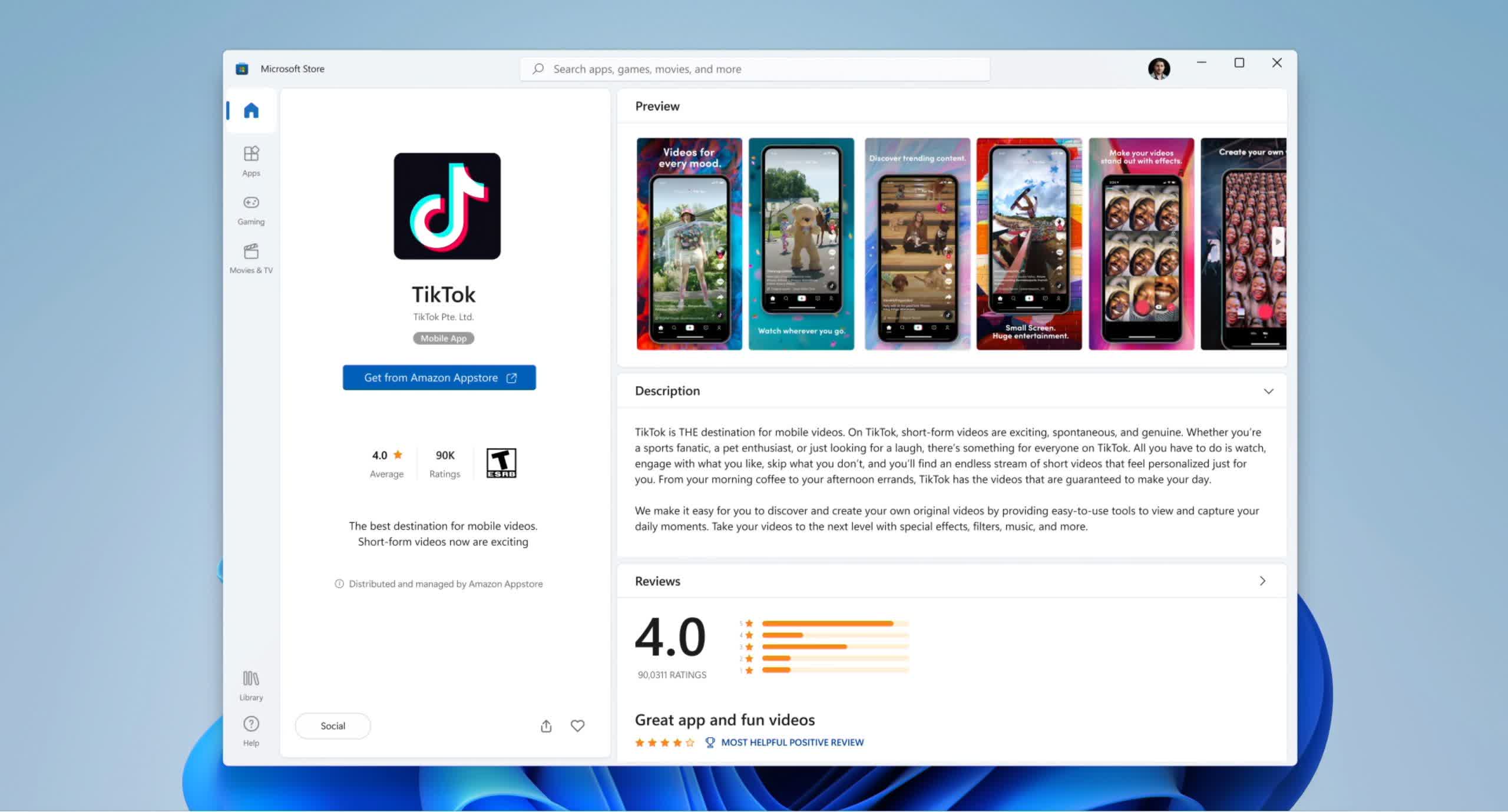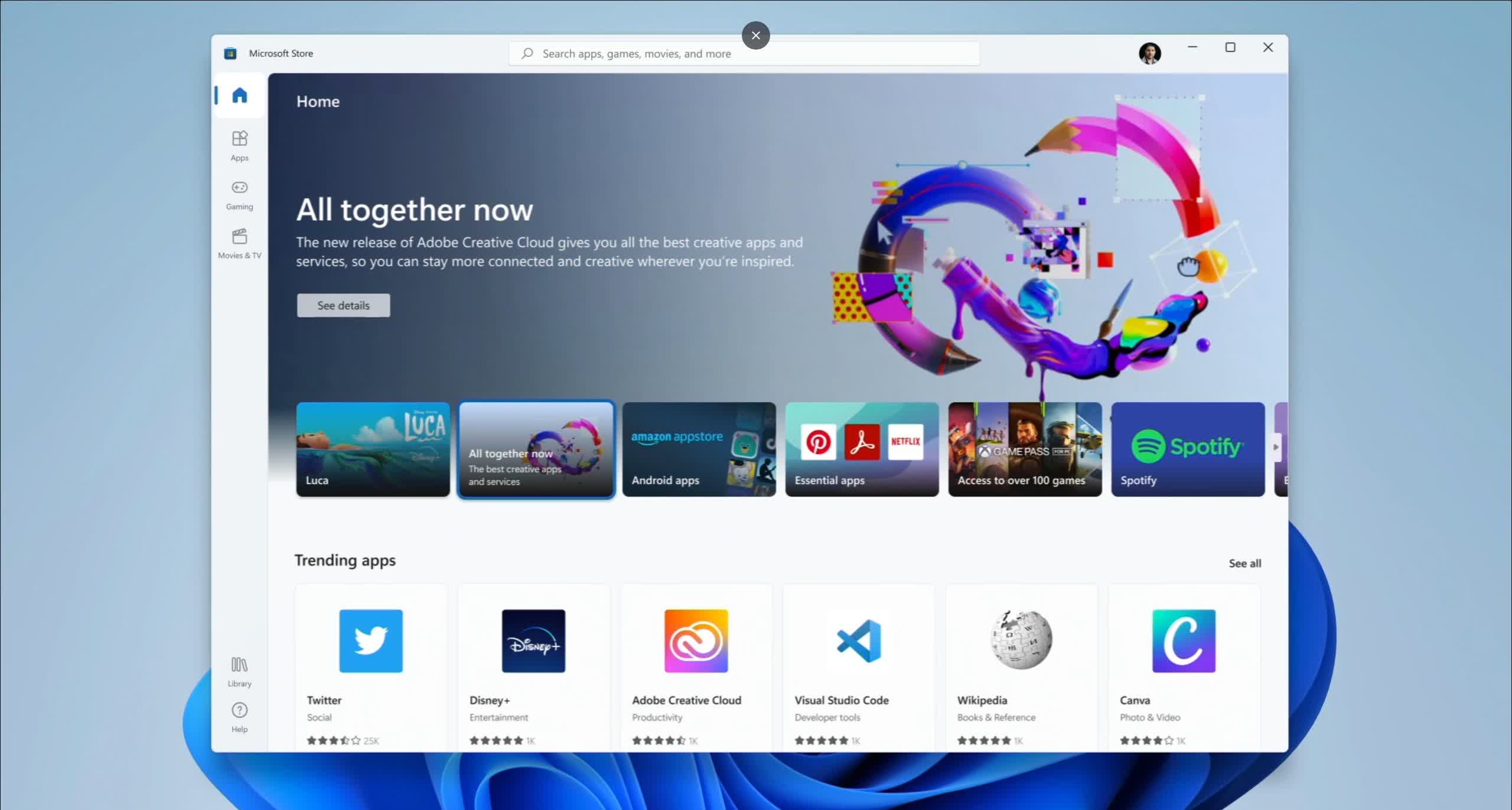In brief: The new Microsoft Store coming with Windows 11 brings some well-deserved changes to the platform, such as a redesigned UI, new apps, a new business system, and even Android apps via Amazon Appstore. Despite all that's coming, Microsoft still wants more, including integrations with other third-party stores like Steam and Epic Games Store.
Yesterday, Microsoft unveiled Windows 11, the company's new client OS that promises to improve performance and user productivity. Alongside Windows 11, Redmond also showed the redesigned Microsoft Store and all the changes coming with it.
One of the said changes is the ability to download Android apps via Amazon Appstore, which will allow developers to keep all the revenue made by their apps when customers use third-party payment methods. If the customer doesn't, the revenue split will be 85/15 for apps. On the other hand, games supposedly have a split of 88/12 regardless of the payment method, which still is a sizable reduction from the old split of 70/30.
But as expected, Microsoft wants more than just the Amazon Appstore in its platform. In an interview with The Verge, Microsoft's chief product officer Panos Panay showed interest in partnering with other third-party stores such as Steam and Epic Games Store.
"Windows already in many ways hosts those stores, and if we can host it through the Microsoft Store then of course," said Panay. "For sure, it means as others want to come to the Store, they're very welcome. As a matter of fact, encouraged, and that's kind of why we're building out some of these policies," he added.

Panay's ultimate goal for the Microsoft Store is uniting all stores in a single platform, where "you type the app in and you get the app you want." By putting all stores under the same banner, users benefit from saving time when searching for something and maybe even eliminating the need of having multiple game and app stores installed on your system.
Bringing more third-party stores to the Microsoft Store seems to be a big win for users, but it's worth remembering that the 100 percent sales revenue when using third-party payment methods won't apply to games, which may sound unfair for some developers.
